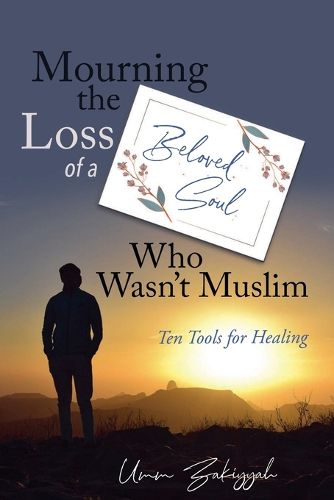Readings Newsletter
Become a Readings Member to make your shopping experience even easier.
Sign in or sign up for free!
You’re not far away from qualifying for FREE standard shipping within Australia
You’ve qualified for FREE standard shipping within Australia
The cart is loading…






Umm Zakiyyah says:
On the afternoon of Sunday, January 26th, 2020, I was sitting in the prayer area of my Maryland home after having prayed Dhuhr. I was still doing my daily Qur'an reading after the early afternoon Salaah when my daughter knocked on the door and asked if she could talk to me for a minute. I told her yes.
As she stepped into the room, she asked, "Did you hear what happened?" I told her I didn't know what she meant. "About the basketball player, Kobe Bryant? You knew who he was, didn't you?"
Her use of the past tense confused me momentarily. "Yes..." I said tentatively.
"He died."
Though I was not personally connected to Kobe Bryant and was not much of a basketball fan myself, he had been very much a part of the world I'd known since young adulthood.
When you lose someone who touched your life even in a distant way, it's not easy to make sense of your feelings. For reasons that are often inexplicable to us, some deaths of otherwise strangers incite deep emotional pain. When the person who passed away was a close relative, a dear friend, or someone who impacted your life greatly, the pain and grief become even more complicated and deeply felt.
Amongst Muslims, when that deep sadness comes as a result of the passing of a soul who was not Muslim, especially if the person was beloved to us in some way, the feelings that we grapple with can become all the more overwhelming and confusing. Personally, as part of an interfaith family with both close-relatives and extended family who are mostly Christians, I myself know those complicated feelings of overwhelm, sadness, and confusion quite well.
In my own life of loss, it has taken me some time to make sense of the complicated emotions I wrestle with as a Muslim grieving a beloved soul who wasn't Muslim. Fortunately, over the years, I've become more familiar with my own grief, and I've found that there are ten tools of healing that help me work compassionately and patiently through the pain.
$9.00 standard shipping within Australia
FREE standard shipping within Australia for orders over $100.00
Express & International shipping calculated at checkout
Umm Zakiyyah says:
On the afternoon of Sunday, January 26th, 2020, I was sitting in the prayer area of my Maryland home after having prayed Dhuhr. I was still doing my daily Qur'an reading after the early afternoon Salaah when my daughter knocked on the door and asked if she could talk to me for a minute. I told her yes.
As she stepped into the room, she asked, "Did you hear what happened?" I told her I didn't know what she meant. "About the basketball player, Kobe Bryant? You knew who he was, didn't you?"
Her use of the past tense confused me momentarily. "Yes..." I said tentatively.
"He died."
Though I was not personally connected to Kobe Bryant and was not much of a basketball fan myself, he had been very much a part of the world I'd known since young adulthood.
When you lose someone who touched your life even in a distant way, it's not easy to make sense of your feelings. For reasons that are often inexplicable to us, some deaths of otherwise strangers incite deep emotional pain. When the person who passed away was a close relative, a dear friend, or someone who impacted your life greatly, the pain and grief become even more complicated and deeply felt.
Amongst Muslims, when that deep sadness comes as a result of the passing of a soul who was not Muslim, especially if the person was beloved to us in some way, the feelings that we grapple with can become all the more overwhelming and confusing. Personally, as part of an interfaith family with both close-relatives and extended family who are mostly Christians, I myself know those complicated feelings of overwhelm, sadness, and confusion quite well.
In my own life of loss, it has taken me some time to make sense of the complicated emotions I wrestle with as a Muslim grieving a beloved soul who wasn't Muslim. Fortunately, over the years, I've become more familiar with my own grief, and I've found that there are ten tools of healing that help me work compassionately and patiently through the pain.